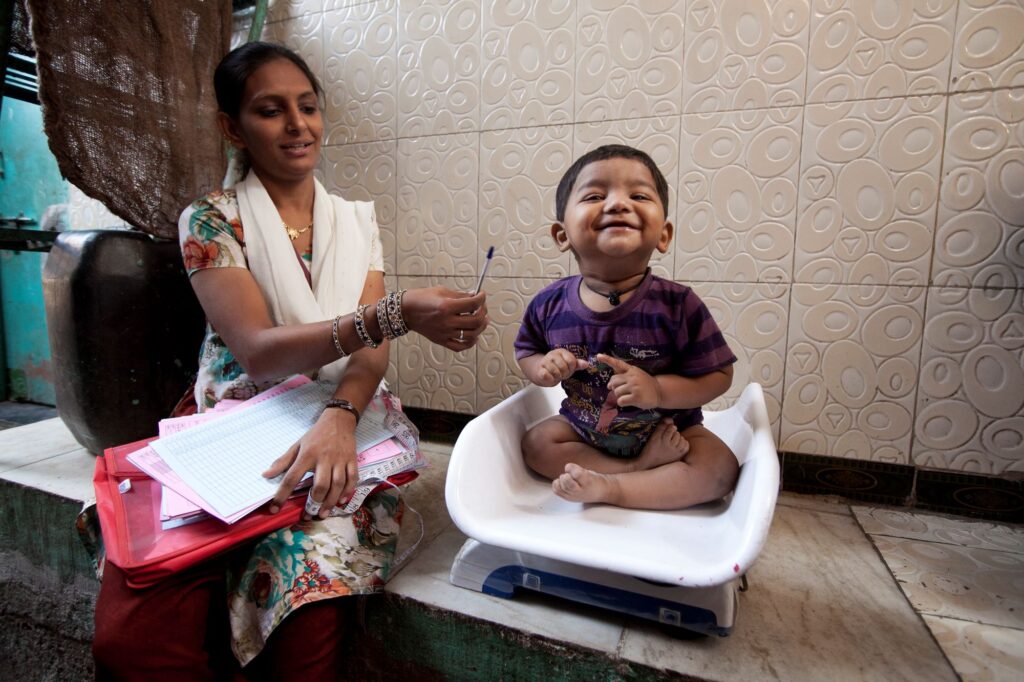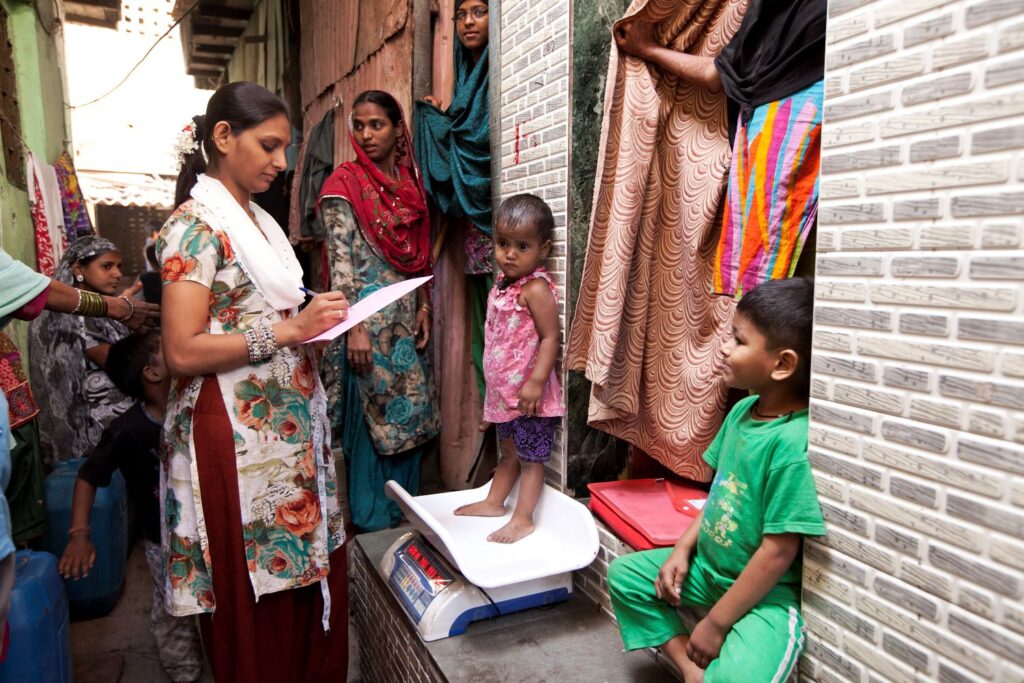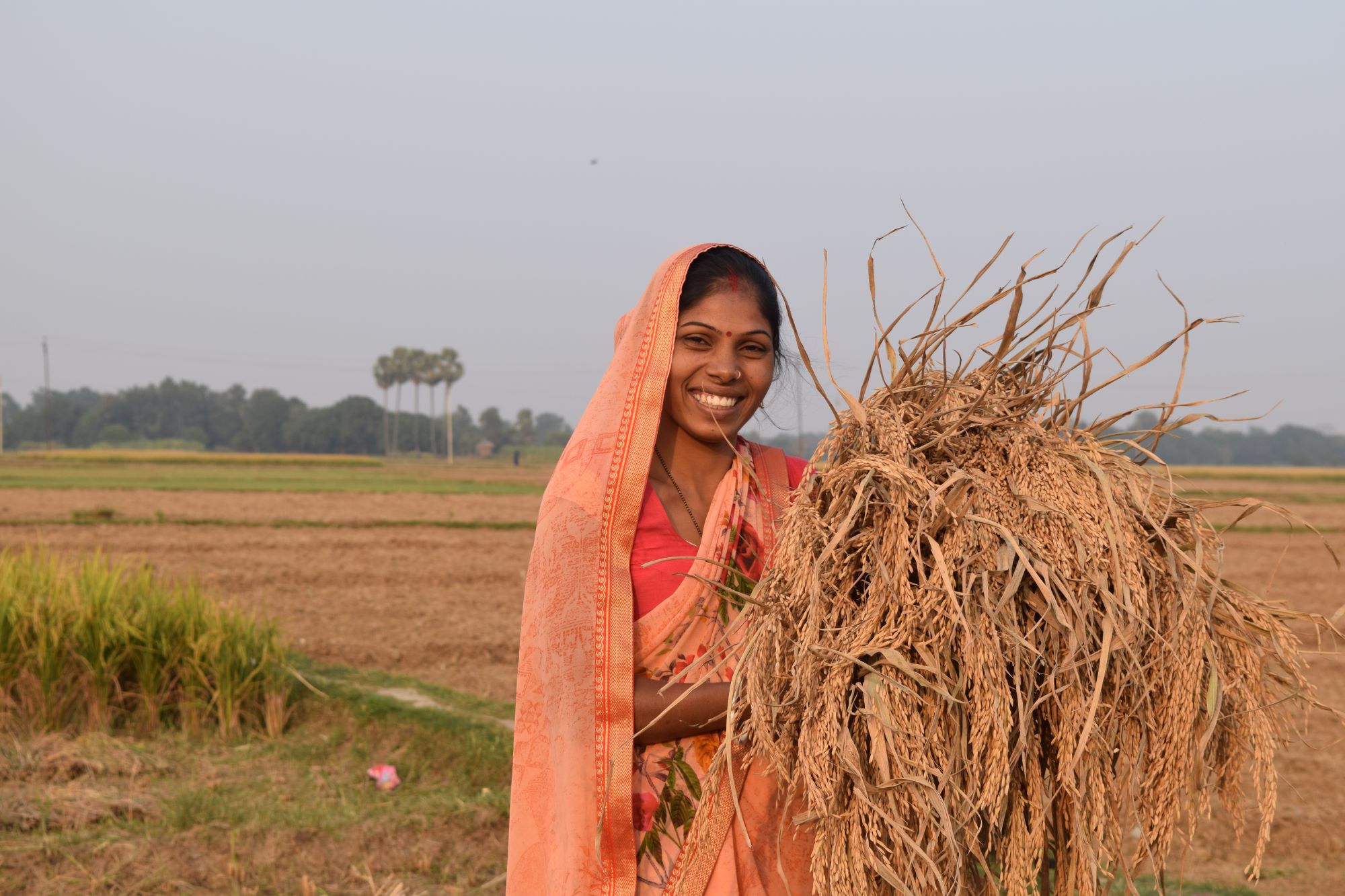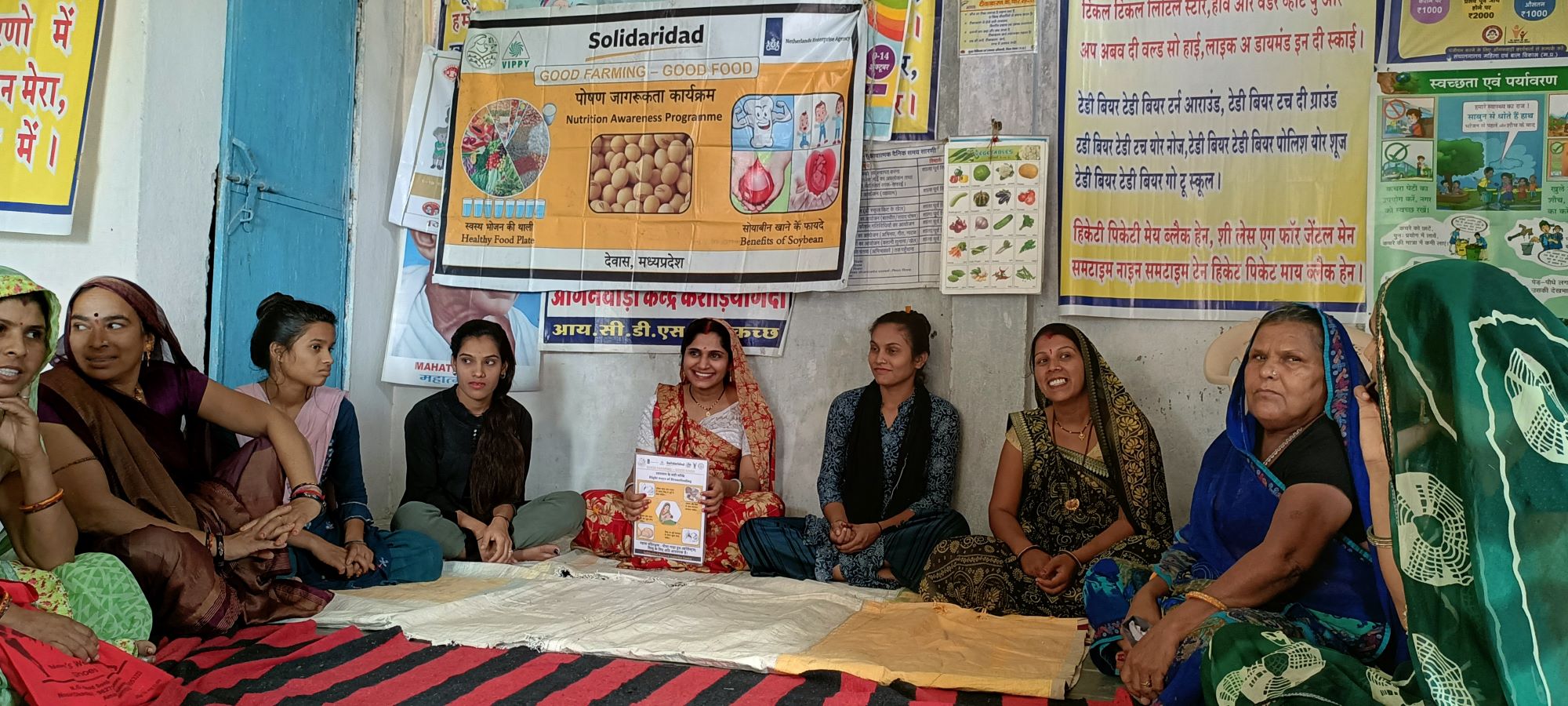Bal Raksha Bharat has consistently aligned with Government of India’s endeavors to foster enduring improvements in child health and nutrition, aligning with the nation’s commitment to achieving the Sustainable Development Goals
Malnutrition in low and middle-income countries is not solely about the inaccessibility of resources or income or lack of access to food, it is also about many other significant factors like- cultural influence, contextual elements, gender dimension, and promotion of positive health behavior.
One of the ways to enhance nutritional outcomes is through transforming the caregiving behaviors of mothers and families. This transformation is achieved through behavior change communication to enhance caregiver’s knowledge, attitude, and practices on various aspects of child nutrition, including early and exclusive breastfeeding, care during pregnancy, proper dietary diversity, timely and age-appropriate complementary feeding, immunization, hygiene, and other services crucial to combat malnutrition.

Declining rates of malnutrition in India can be attributed to the strategy of integrating nutrition with other programs and priorities and bringing the nutrition agenda to the public, which signifies a localized and community-focused approach to address malnutrition. It helped in increasing awareness and generates a sense of ownership among the community. In the recent past multiple initiatives have been taken up by the government of India to address malnutrition and raise awareness among common mass and families, like POSHAN Abhiyan, Jan Aandolan, Mission POSHAN 2.0, Saksham Aaganwadi, Poshan Bhi Padahi Bhi, Paalan 1000 campaign, PMMVY, Anemia Mukt Bharat, Poshan Panchayats, livelihood promotion through MGNREGS, Swachh Bharat Abhiyan etc.
As a significant step towards promoting local and traditional nutritious and healthy food, the United Nations at the behest of the Government of India, declared 2023 the Year of Millets and India has a vision to make this a People’s movement for Millets. India’s 2023 G20 presidency marks a significant milestone, particularly in the area of health and nutrition. It has secured remarkable commitments from all member nations, focusing on promoting local, affordable, and nutritious grains like Millet, supporting food security in developing countries, and ensuring access to safe, nutritious diets. This presidency also highlights nutrition-sensitive issues in agriculture, all in pursuit of the right to adequate food.
Malnutrition is also a multi-dimensional issue that requires a cross-sectoral approach that encourages convergence at all levels, including Panchayat and Households. The goal of achieving multi-sectoral convergence is to ensure that interventions from diverse sectors align effectively to benefit households. Gram Panchayat is the perfect platform for strategic community-level convergence. Poshan Panchayat, one of the initiatives of the Government of India, and other village gatherings provide a better platform for increasing demand side interventions for nutrition and improving public participation. Poshan Panchayat is a breakthrough in improving convergence at the grassroots level. Civil Society organizations have a significant role to play in facilitating convergence activities at the community level and in the success of Poshan Panchayats. These organizations can become the partners of choice for identifying the community’s nutritional needs, sharing ideas, and implementing projects in collaboration with the government. It will also help strategically identify tasks and implement them with agreed plans at the local level.

Given the intricate nature of human behavior, achieving behavioral changes in dietary and nutritional practices is not always easy. Therefore, despite all concerted efforts, the rate of malnutrition reduction reflected in the last two rounds of NFHS (4 & 5) is sub-optimal. However, civil society organizations and NGOs play a critical role in bringing positive behavior change among families and caregivers. Having a community presence and acceptance within communities, such organizations have a significant advantage in shaping and improving nutritional and healthcare practices.
Bal Raksha Bharat (Also known as Save the Children) working closely with communities and families in 15 states and 3 union territories of India, catalyzes immediate and lasting change for children and brings positive behavior change in caregivers. Over the years, Bal Raksha Bharat has worked to support the Government of India’s credible efforts to bring about lasting change in health and nutrition for children and to achieve Sustainable Development Goals adopted and committed by the Government of India.
Bal Raksha Bharat’s ambition for children is that all children survive, learn, and are protected. For the survival and nutritional well-being of our children and mothers, the organization works with its partners at national, regional, community, and household levels through a life-cycle approach to prevent and treat malnutrition by bringing multi-sectoral nutrition interventions to families. Bal Raksha Bharat is committed to delivering holistic development and care for children and, thus, its nutrition strategy is highly adaptive and contributes significantly to the overall nutritional well-being.
For malnutrition reduction in under five children, Bal Raksha Bharat tested and piloted innovative nutrition models, the use of technology which are replicable within the existing structure of Anganwadi and ICDS system. Such nutrition interventions are highly effective and cost-efficient. Technical assistance to district and state departments/POSHAN Abhiyan and system strengthening is another approach to strengthen and support the nutritional service delivery and strengthening the existing mechanism to address malnutrition. As a part of its strategy, Bal Raksha Bharat’s programming is based on establishing linkages between existing nutrition and sanitation programs, and income support efforts at the community level, along with a robust behavior change communication strategy.
Bal Raksha Bharat has made a significant and direct impact on the lives of an impressive 3.2 million children through its essential health and nutrition interventions, while also connecting them with government schemes and programs.
Bal Raksha Bharat works in three modes – providing technical assistance to national and sub-national (state, district, block) governments, supporting quality improvements in service delivery in state and sub-state systems, and acting as a convener at the national and state levels to ensure that information, knowledge, learning, and resources are shared.
Bal Raksha Bharat’s approach to nutrition programming and implementation is based on:

- System Strengthening: Engage and support department and ICDS at national, state and district in strategic planning, implementation, capacity enhancement of FLWs, and handholding support to POSHAN Abhiyan and Jan Aandolan initiatives
- Targeted Interventions & evidence building: Testing and piloting targeted and focused interventions, studies & research for malnutrition reduction with a focus on a local, affordable nutritious diet and counseling
- Innovative cost-effective replicable models: Presenting technology-enabled, cost-effective innovative models to be incorporated into the existing system for improved and sustained nutritional outcomes in children & mothers
- Community Participation & Mobilization: For effective behavior change within the community, it is imperative to have community ownership and awareness. We mobilize the community and spread nutrition literacy using local influencers and existing platforms like VHSND and other village-level platforms.Top of Form








